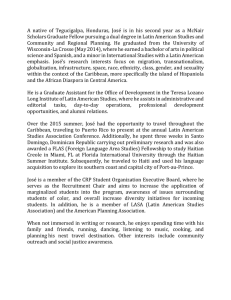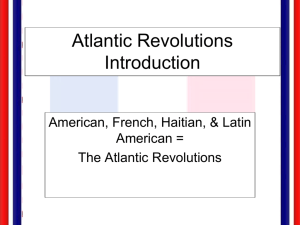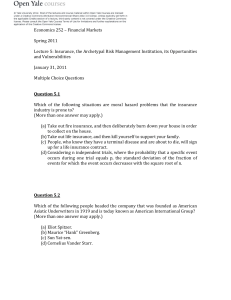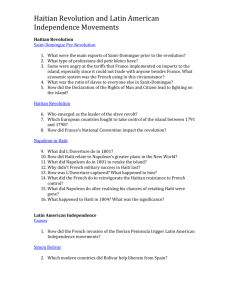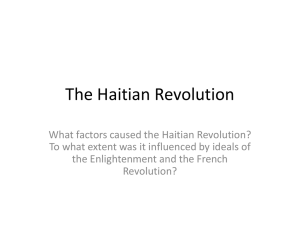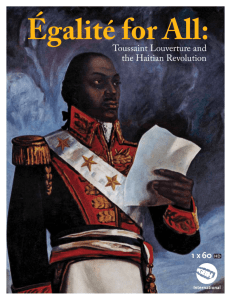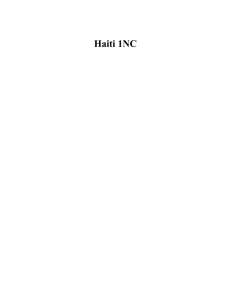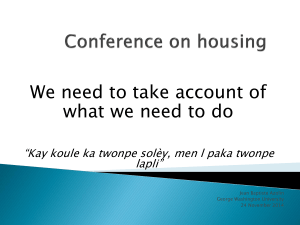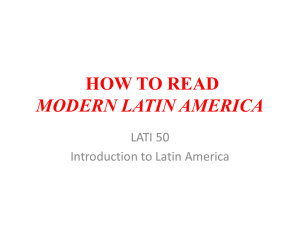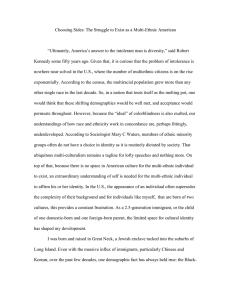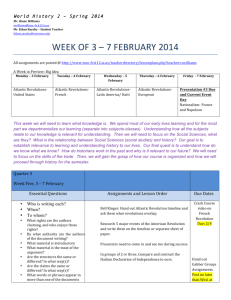I. IDs and short essay (1-2 paragraphs/maximum): Know the dates
advertisement
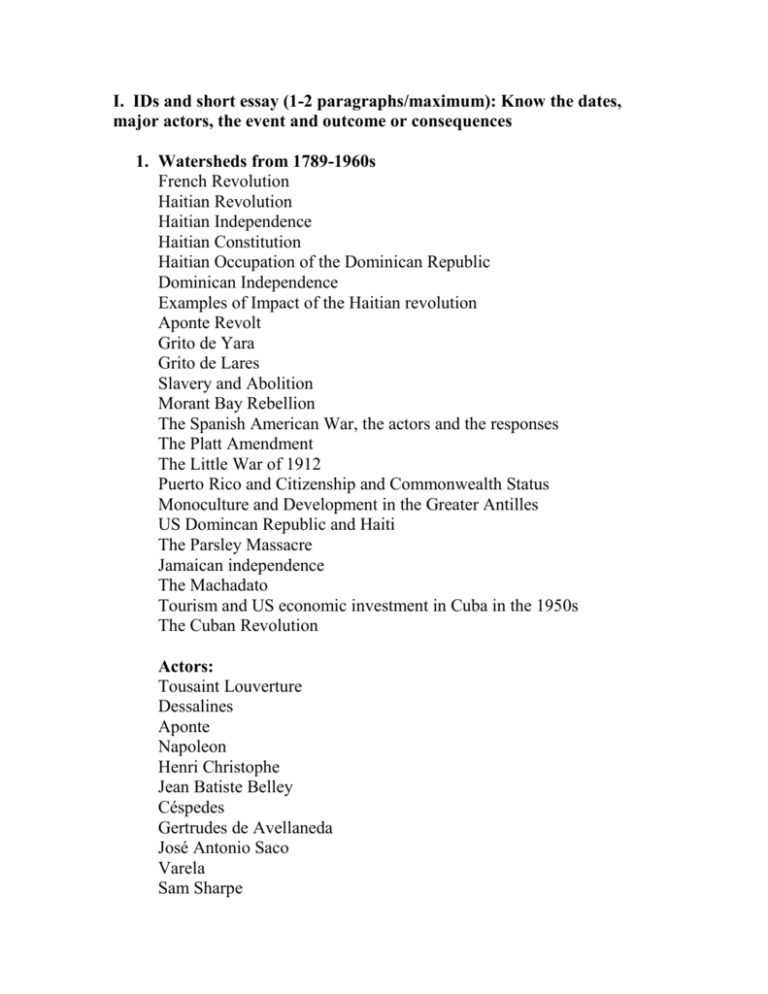
I. IDs and short essay (1-2 paragraphs/maximum): Know the dates, major actors, the event and outcome or consequences 1. Watersheds from 1789-1960s French Revolution Haitian Revolution Haitian Independence Haitian Constitution Haitian Occupation of the Dominican Republic Dominican Independence Examples of Impact of the Haitian revolution Aponte Revolt Grito de Yara Grito de Lares Slavery and Abolition Morant Bay Rebellion The Spanish American War, the actors and the responses The Platt Amendment The Little War of 1912 Puerto Rico and Citizenship and Commonwealth Status Monoculture and Development in the Greater Antilles US Domincan Republic and Haiti The Parsley Massacre Jamaican independence The Machadato Tourism and US economic investment in Cuba in the 1950s The Cuban Revolution Actors: Tousaint Louverture Dessalines Aponte Napoleon Henri Christophe Jean Batiste Belley Céspedes Gertrudes de Avellaneda José Antonio Saco Varela Sam Sharpe Paul Bogle George Gordon Juan Pablo Duarte Santana José Martí Antonio Maceo Cirilo Villaverde Betances Machado Batista Luis Muñoz Marín Pedro Albizu Campos René Marquez José Luis Gonzalez Trujillo Cienfuegos Castro (Raul and Fidel) Celia González Vilma Espín Haydee Santamaria Nicolás Guillén Melba Hernandez Rodriguez Edwidge Danticat Alexander Bustamente 2. Question on Sources: Differences Between Primary and Secondary Sources Using primary sources to create history The Farming of Bones as History Take-Home Essay: I will give them out on Tuesday Example: Answer 2 of the following 4 questions: Possible 19th century questions 1. Discuss two major challenges evident in all of the islands of the Greater Antilles in the 19th Century. How did each island face the challenges? 2. Describe when and how each island attained independence. Discuss major similarities and major differences. 3. Describe when and how abolition occurred in each island. Discuss the similarities and differences. Possible 20th century Questions 1. In the Aftermath of the Spanish American war, the United States became a major political and economic force in the Caribbean Basin: Why? Compare and contrast the role of the United States in each country 2. Discuss the role of cultural production and its role in shaping Caribbean history 3. Revolutionaries and Dictators from 1930-1960s: How have they shaped Caribbean history: Compare their stance/ideas about consolidating national cohesion or identity, economic development and their position of foreign interference. PLEASE SIGN THE HONOR CODE
